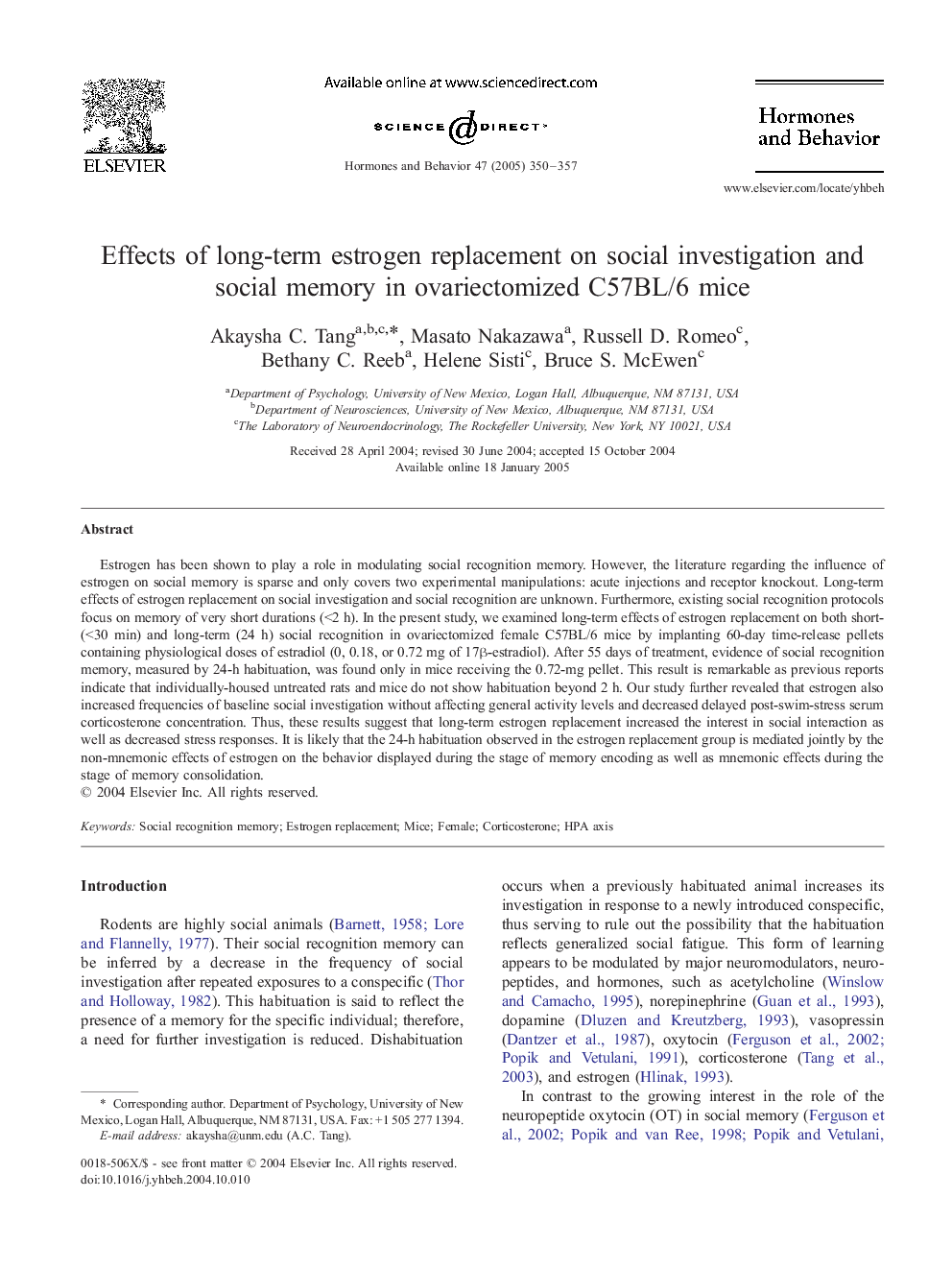| Article ID | Journal | Published Year | Pages | File Type |
|---|---|---|---|---|
| 10301582 | Hormones and Behavior | 2005 | 8 Pages |
Abstract
Estrogen has been shown to play a role in modulating social recognition memory. However, the literature regarding the influence of estrogen on social memory is sparse and only covers two experimental manipulations: acute injections and receptor knockout. Long-term effects of estrogen replacement on social investigation and social recognition are unknown. Furthermore, existing social recognition protocols focus on memory of very short durations (<2 h). In the present study, we examined long-term effects of estrogen replacement on both short- (<30 min) and long-term (24 h) social recognition in ovariectomized female C57BL/6 mice by implanting 60-day time-release pellets containing physiological doses of estradiol (0, 0.18, or 0.72 mg of 17β-estradiol). After 55 days of treatment, evidence of social recognition memory, measured by 24-h habituation, was found only in mice receiving the 0.72-mg pellet. This result is remarkable as previous reports indicate that individually-housed untreated rats and mice do not show habituation beyond 2 h. Our study further revealed that estrogen also increased frequencies of baseline social investigation without affecting general activity levels and decreased delayed post-swim-stress serum corticosterone concentration. Thus, these results suggest that long-term estrogen replacement increased the interest in social interaction as well as decreased stress responses. It is likely that the 24-h habituation observed in the estrogen replacement group is mediated jointly by the non-mnemonic effects of estrogen on the behavior displayed during the stage of memory encoding as well as mnemonic effects during the stage of memory consolidation.
Related Topics
Life Sciences
Biochemistry, Genetics and Molecular Biology
Endocrinology
Authors
Akaysha C. Tang, Masato Nakazawa, Russell D. Romeo, Bethany C. Reeb, Helene Sisti, Bruce S. McEwen,
